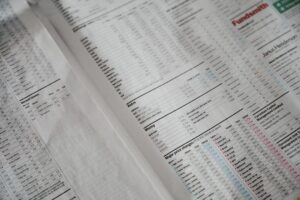Tax Implications of Forex Trading: What You Need to Know
Forex trading, also known as foreign exchange trading, has gained significant popularity in recent years. This decentralized global market allows individuals to trade currencies and potentially profit from fluctuations in exchange rates. While forex trading offers numerous opportunities for financial gains, it is important to understand the tax implications associated with this activity.
Taxation of Forex Trading
The tax treatment of forex trading varies from country to country. It is crucial for traders to familiarize themselves with the tax laws in their respective jurisdictions. In this article, we will provide a general overview of the tax implications of forex trading.
1. Taxable Income
Profits from forex trading are generally considered taxable income. In most countries, including the United States, any income generated from forex trading must be reported on your tax return. This includes both realized and unrealized gains.
Realized gains refer to profits made from closing a trade. For example, if you buy a currency pair and later sell it at a higher price, the difference between the purchase price and the selling price is considered a realized gain.
Unrealized gains, on the other hand, occur when the value of an open trade increases but has not yet been closed. These gains are still considered taxable, even though the profit has not been realized through a trade closure.
It is important to note that losses from forex trading can also be deducted from taxable income. If you experience a loss from a trade, it can offset your taxable gains and potentially reduce your overall tax liability.
2. Capital Gains Tax vs. Ordinary Income Tax
The tax treatment of forex trading largely depends on whether it is considered a capital asset or ordinary income. In many countries, including the US, forex trading is treated as ordinary income, subject to regular income tax rates.
However, if forex trading is considered an investment activity rather than a business, it may be eligible for capital gains tax rates. Capital gains tax rates are typically lower than ordinary income tax rates, providing potential tax advantages for traders.
To determine whether forex trading is classified as a business or investment activity, tax authorities consider various factors. These factors may include the frequency of trading, the trader’s level of involvement, and the amount of time dedicated to trading activities.
3. Reporting Requirements
Forex traders are generally required to report their trading activities and income to tax authorities. This includes declaring all profits, losses, and expenses related to forex trading on their tax returns.
In the US, traders must report forex trading activities on Form 8949, which is used to report capital gains and losses. Additionally, they need to complete Schedule D to calculate their overall capital gains or losses from forex trading.
Traders should keep detailed records of all their trades, including dates, transaction amounts, and any associated costs or fees. This documentation is crucial for accurately reporting trading activities and calculating taxable gains or losses.
4. Tax Deductible Expenses
Forex traders may be eligible to deduct certain expenses related to their trading activities. These expenses can help reduce their overall taxable income.
Common deductible expenses include trading platform fees, data subscriptions, internet costs, educational materials, and professional services. However, it is important to consult with a tax professional to ensure that these expenses are eligible for deductions under local tax laws.
Conclusion
Forex trading can offer lucrative opportunities for traders, but it is essential to understand the tax implications associated with this activity. Traders should familiarize themselves with the tax laws in their respective jurisdictions, report their trading activities accurately, and keep detailed records of their trades and expenses.
Consulting with a tax professional is highly recommended to ensure compliance with tax regulations and maximize potential tax advantages. By understanding and managing the tax implications of forex trading, traders can navigate the financial landscape more effectively and optimize their trading strategies.






